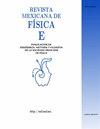新冠肺炎疫情期间基于传统游戏的高中物理学习策略研究
Q4 Social Sciences
引用次数: 5
摘要
在2019冠状病毒病大流行期间,仍然必须进行物理学习,以便学生仍然可以获得物理课程。本现象学研究旨在探讨新冠肺炎大流行期间高中物理教师开展传统游戏学习的策略。研究数据是通过对日惹市5所高中10名物理教师的深度访谈收集的。这10名参与者采用了有目的的抽样技术。数据分析采用分析化简法,首先从访谈结果中识别重要陈述,确定核心主题,并解释物理学习策略的本质。研究结果发现,传统的基于游戏的物理学习是使用基于上下文、探究、项目和问题的学习模型进行的。物理材料被整合到传统的游戏中,包括tuup, benthik, bekelan, sulamanda, egrang, sekongan, jeblugan和gobak sodor。物理学习评估是通过评估作业、表现、演讲、测试和学生制作传统游戏的结果来进行的。传统的基于游戏的物理学习是通过远程学习应用程序完成的,如Zoom, b谷歌Meet,谷歌Classroom,谷歌Mail和WhatsApp。基于传统游戏学习物理的支持因素包括学习效率高、学习可以在任何地方进行、学生可以广泛地探索自己的能力。基于传统游戏学习物理的制约因素包括网络不稳定、学生能力差异、从未进行过远程学习等。在新冠肺炎疫情期间,物理教师的能力、学生的能力和设施的可用性是决定传统游戏物理学习成功的主要因素。本文章由计算机程序翻译,如有差异,请以英文原文为准。
Strategies of Physics Learning Based on Traditional Games in Senior High Schools during the Covid-19 Pandemic
Physics learning during the Covid-19 pandemic must still be done so that students can still get physics intake. This phenomenological research aims to explore physics teacher strategies in conducting traditional game-based learning in senior high schools during the Covid-19 pandemic. The research data was collected through in-depth interviews with 10 physics teachers from five senior high schools in Yogyakarta. The ten participants were taken using the purposive sampling technique. The data analysis used analytic reduction which started with identifying important statements from the interview results, determining the core theme, and interpreting the physics learning strategy essence. The research results found that traditional game-based physics learning was carried out using contextual, inquiry, project, and problem-based learning models. The physics material is integrated into traditional games which include tulup, benthik, bekelan, sulamanda, egrang, sekongan, jeblugan, and gobak sodor. Physics learning evaluation is carried out by assessing assignments, performance, presentations, tests, and the results of making students' traditional games. Traditional game-based physics learning is done through distance learning applications such as Zoom, Google Meet, Google Classroom, Google Mail, and WhatsApp. Supporting factors for learning physics based on traditional games include efficient learning, learning can be done anywhere, and students can explore their abilities widely. Inhibiting factors for learning physics based on traditional games include unstable internet networks, students’ different abilities, and never done distance learning. The physics teacher’s competence, the student’s abilities, and the facilities availability are the main factors in determining the learning physics success based on traditional games during the Covid-19 pandemic.
求助全文
通过发布文献求助,成功后即可免费获取论文全文。
去求助
来源期刊

Revista Mexicana De Fisica E
社会科学-科学史与科学哲学
CiteScore
0.80
自引率
0.00%
发文量
14
审稿时长
>12 weeks
期刊介绍:
The Revista Mexicana de Física (Rev. Mex. Fis.) publishes original papers of interest to our readers from the physical science com unity. Language may be English or Spanish, however, given the nature of our readers, English is recommended. Articles are classified as follows:
Research. Articles reporting original results in physical science.
Instrumentation. Articles reporting original contributions on design and construction of scientific instruments. They should present new instruments and techniques oriented to physical science problems solutions. They must also report measurements performed with the described instrument.
Reviews. Critical surveys of specific physical science topics in which recent published information is analyzed and discussed. They should be accessible to physics graduate students and non specialists, and provide valuable bibliography to the specialist.
Comments. Short papers (four pages maximum) that assess critically papers by others authors previously published in the Revista Mexicana de Física. A comment should state clearly to which paper it refers.
 求助内容:
求助内容: 应助结果提醒方式:
应助结果提醒方式:


